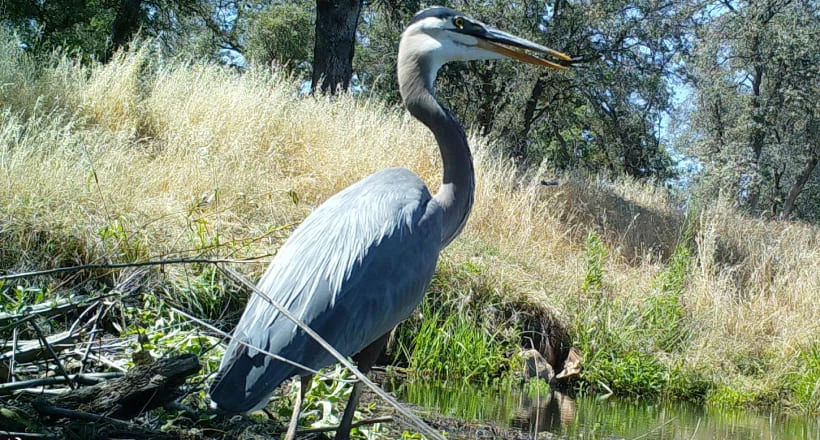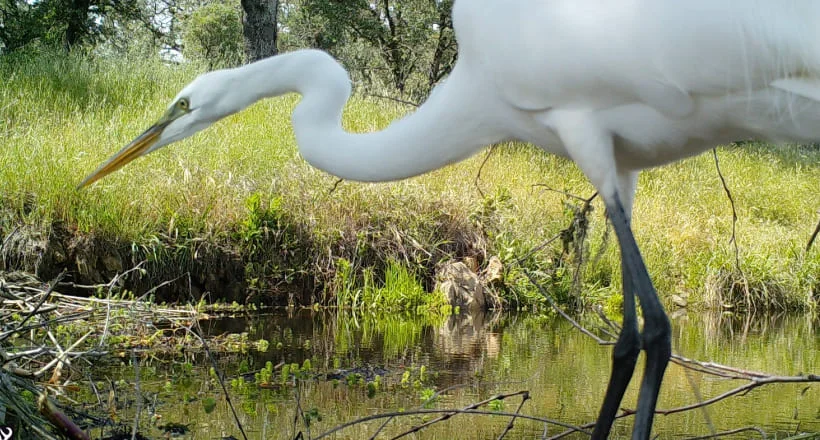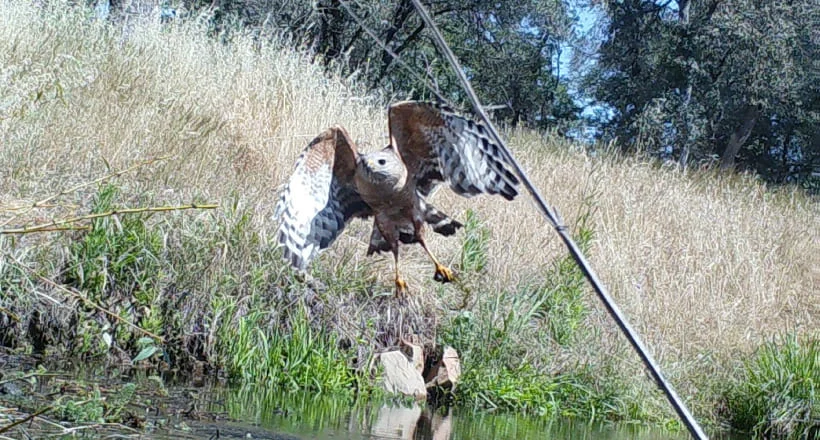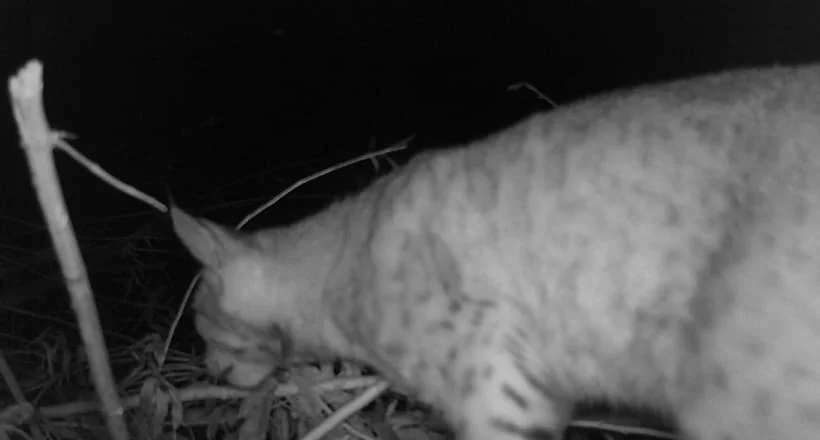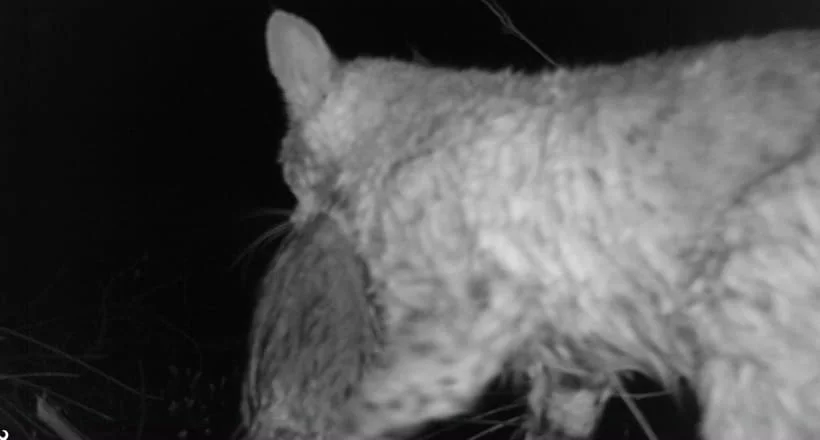About Us
Blue Ruby Farm
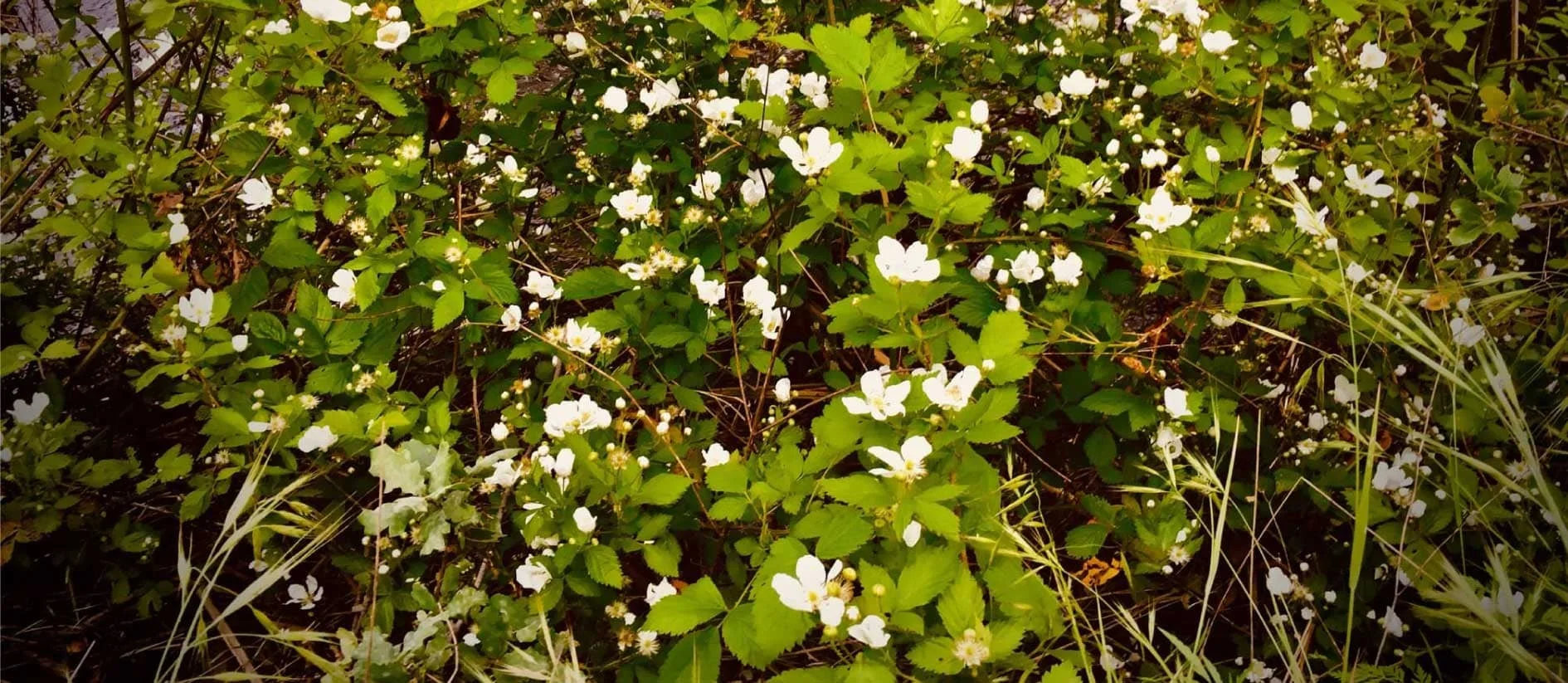
Philosophy
In many Western and indigenous cultures, groups in communities, commons, and tribes all participated in the tending, procurement, and preservation of food and resources. They exist at the intersection of the constructed idea of “wildness” and the civilized idea of cultivation. The land is not owned, it is stewarded to benefit its ecology and future generations. At Blue Ruby Farm, we draw from indigenous knowledge and the book of nature to bring our ecology into greater biodiversity and abundance.
We look to our experiences on the land, in observation and meditation, to guide us in making these reparations. This is what we like to call “cultivating wildness”. What is wildness? It’s everything: the common street tree, the worm-eating your apple, the dog chasing the squirrel, and everything in your built environment that was once “wild”. It’s you and me. The wildness of our ecosystems is an expression of us in our true state, surrounded by the constant cycling of many things in the process of being born, living, and dying simultaneously. These are the forces we work with every day, never far from our awareness. They are the energies we look to for creating and cultivating the beauty that is all around us. The beauty that is us.
Inspiration
Years ago, long before AirBnB, our search for respite from long hours in restaurants and catering led us to some choice places that inspired and reconnected us. In 2008 after a trip to Italy, further inspiration came from the agriturismi in the foothills of the Apennine mountains where farmers host, cook and dine with their guests. Food at its peak of “aliveness” and the nurturing communal experiences of the farms was the seed for this place.
We arrive here having gone through many trials and errors, incredible synchronicities, and intuitions. All of the experiences, from creating food and events at the highest level to small intimate dinners, have directed us to a different meaning of wealth and abundance: a space to connect with each other, the land– and to have the greatest restorative impact on both.
Your Hosts
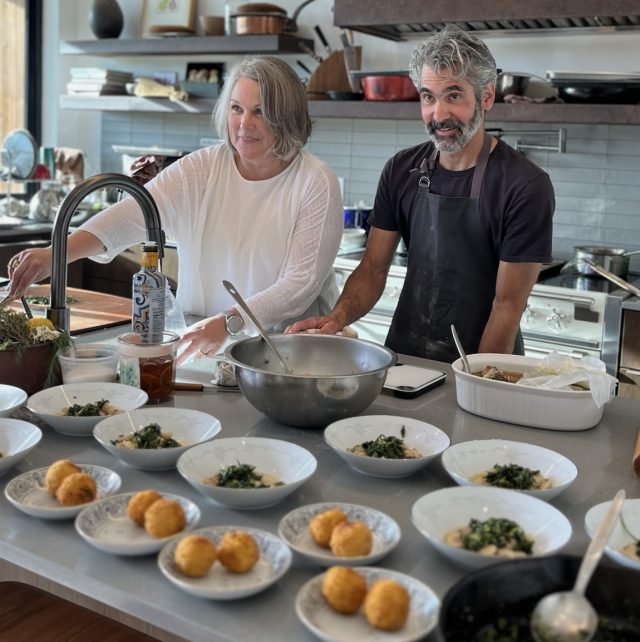
Paul and Stephanie Ladeira both have backgrounds in restaurants, catering, and hospitality.
Paul’s cooking experience includes Michel Richard’s Citronelle, Aujourd’hui Boston, and Chez Panisse. He has also cooked with Jean-Louis Palladin and Julia Child. He currently divides his time as a private chef and land manager focusing on ecological restoration while Stephanie is the head of fundraising for a non-profit organization focusing on ocean health and marine mammals.
Observations
Communities create culture.
We often speak of culture in generalizations— large groups of people that make up a country or region. However if we look closer, we see that cultures find their roots in small community groups like towns, villages or tribes. Regionally, one culture can have different food ways and traditions than another in the next valley over or on the other side of a mountain.
Community is the symbiosis that creates culture.
What does this have to do with farming? Agriculture is agrarian culture, and though we have come very far in our definition of what that means, the idea that we’ve actually made progress is questionable.
We work very, very hard, and spend lots of time and money. We use lots of synthetic chemicals and poisons to grow food that’s not so good for us, or for the soil or the planet. One could argue that we’ve been wasting our time for 10000 years. Native peoples fed themselves abundantly by managing landscapes without nearly the effort and labor that is associated with modern farming. They had no cancer or any diseases of civilization. The diseases that eventually killed them en masse arrived in North America with Europeans.
All this is to say, why are we doing what we’re doing?
It is a joy to restore a landscape and to see plants, animals and insects thrive. To be a part of that deeply grounding experience. What is even more rewarding and more imperative is the community that is drawn to that experience. That they’ve come to realize and understand on some level that they are disconnected from the forces of life that make them human; the life forces that exist everywhere in the natural world, all around us, in every moment. Whether we notice it or not, it has always been there and for the majority of human history it has been regarded as sacred.
And that is how we see it.
Because in that sacredness lies not only a connection to the Earth but our connection to each other.
This is why we do what we do. We build community by sharing. We create culture in that community by being together and helping each other out. We put aside our differences and our personal failings and judgments for the greater good of the whole. We co-create this culture with natural world.
To quote a well know line from Seth Godin:
People like us, do things like this.
And that is why we do what we do.
It is why Blue Ruby Farm to us, is a project unique to itself, yet not exclusive to a select few. We hope you’ll join us as we start this portion of this amazing journey we are blessed and privileged to be on.
Wildlife
Architecture
Explore the award-winning architecture firm, Vertebrae LA, who brought the owners of Blue Ruby Farm’s vision to life: https://www.vertebrae.la/
Location
Situated between Grass Valley and Marysville, off CA Highway 20, Blue Ruby Farm is in the Yuba County foothills town of Browns Valley. The community serves as a gateway to beautiful Sierra Foothill towns like Oregon House, where visitors will have access to some of the most amazing wines, olive oil, and nutrient-dense produce in Northern California.
Browns Valley is also close to Collins Lake, Bullards Bar, hiking trails, and the wild Yuba River. Or you can travel to Tahoe, Truckee, the Sierra Buttes, or Sacramento in just one 1+ hour by car. The closest international airport is Sacramento International. Several smaller airports cater to private aircraft. Yuba County Airport in Olivehurst is the closest to us.
